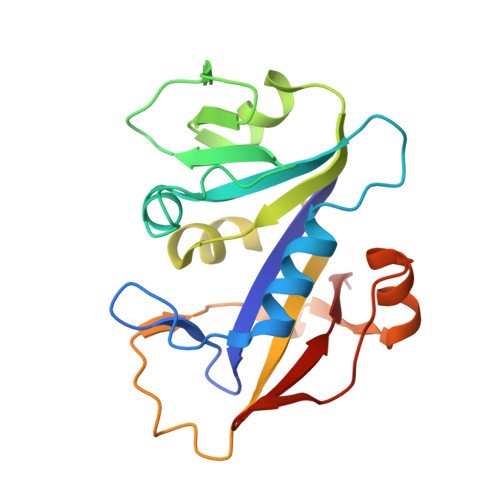Structural analysis of the active sites of dihydrofolate reductase from two species of Candida uncovers ligand-induced conformational changes shared among species.
Paulsen, J.L., Viswanathan, K., Wright, D.L., Anderson, A.C.(2013) Bioorg Med Chem Lett 23: 1279-1284
- PubMed: 23375226
- DOI: https://doi.org/10.1016/j.bmcl.2013.01.008
- Primary Citation of Related Structures:
3RO9, 3ROA, 4H95, 4H96, 4H97, 4H98 - PubMed Abstract:
A novel strategy for targeting the pathogenic organisms Candida albicans and Candida glabrata focuses on the development of potent and selective antifolates effective against dihydrofolate reductase. Crystal structure analysis suggested that an essential loop at the active site (Thr 58-Phe 66) differs from the analogous residues in the human enzyme, potentially providing a mechanism for achieving selectivity. In order to probe the role of this loop, we employed chemical synthesis, crystal structure determination and molecular dynamics simulations. The results of these analyses show that the loop residues undergo ligand-induced conformational changes that are similar among the fungal and human species.
- Department of Pharmaceutical Sciences, University of Connecticut, 69 N. Eagleville Rd., Storrs, CT 06269, USA.
Organizational Affiliation:


















